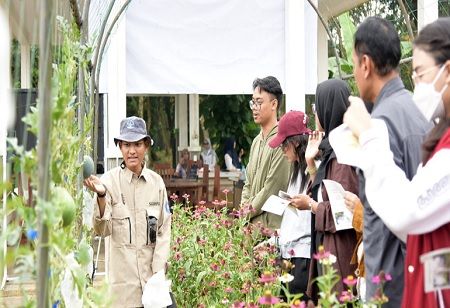- IPB University’s Faculty of Agriculture partners with Gukje Cyber University Korea to enhance education and research in sustainable farming.
- The collaboration supports eco-friendly agricultural innovation and climate change adaptation.
- The partnership includes faculty exchanges, joint research, and technology transfer.
The Faculty of Agriculture (Faperta) at IPB University has entered into a strategic partnership with Gukje Cyber University in South Korea to advance education, research, and innovation in sustainable agriculture. The collaboration was formalized through a Memorandum of Agreement (MoA) signed at the 2025 Seminar on Climate Change Responses and Eco-Friendly Agriculture held at the IPB International Convention Center in Bogor.
The partnership builds on existing cooperation between Indonesia and South Korea, particularly through earlier trials of environmentally friendly pesticides and fungicides conducted with Share Green Co. Ltd. The success of these initiatives inspired the expansion of collaboration into education and agricultural technology development.
According to Seo Yoon-kyung, CEO of Share Green Co. Ltd, Indonesia has immense potential in developing eco-friendly agriculture, with strong interest from local farmers in cultivating medicinal plants. The new partnership aims to foster long-term cooperation through faculty and student exchanges, joint research, and technology transfer.
This initiative also aligns with the Sister Province program between West Java and Chungnam Province in South Korea. Beyond strengthening academic ties, the collaboration is expected to open economic and trade opportunities in agricultural products between the two countries.
Also Read: ASU and Korea Partner to Boost AI in Education
Dr. Ali Nurmansyah from IPB University emphasized that global partnerships are crucial to tackling climate change. “Through international cooperation, we can create innovative, sustainable agricultural solutions that ensure food security”, he said.
The seminar featured experts from both countries discussing biopesticides, climate adaptation strategies, and market opportunities for sustainable agriculture, marking a significant step toward climate resilient education and innovation in the region.

